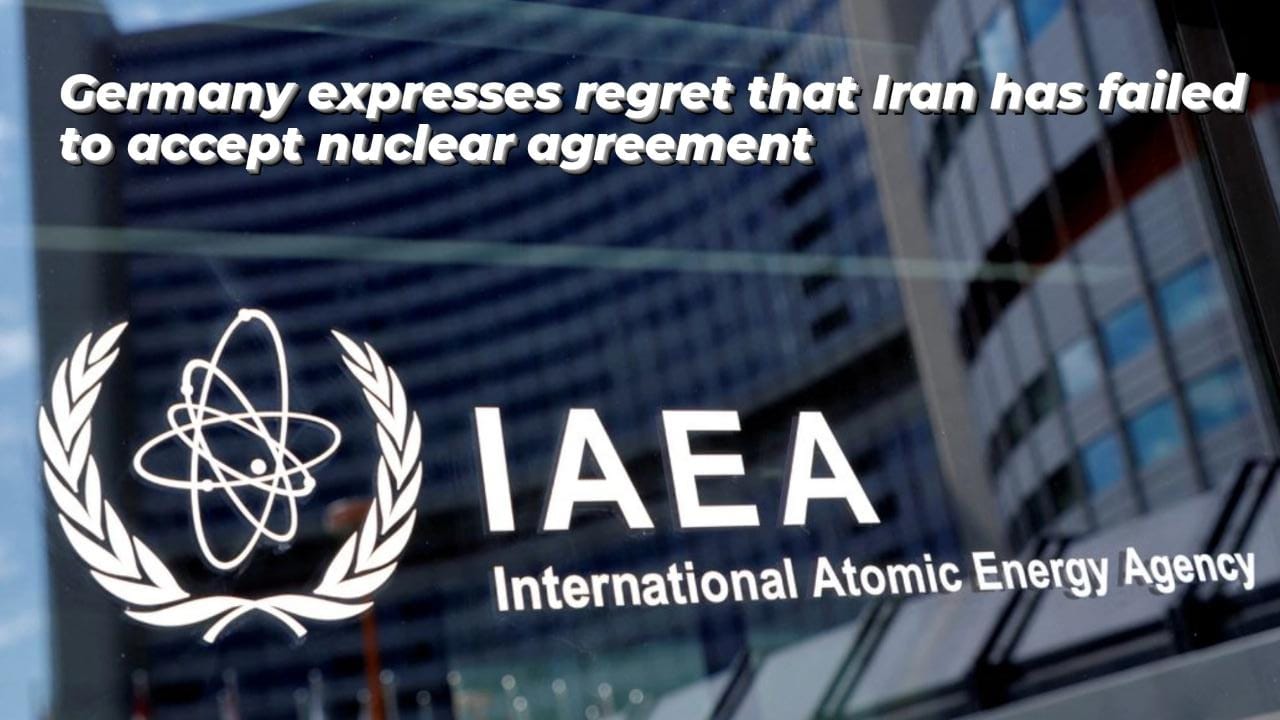
Germany voiced regret on Monday that Tehran has not responded positively to European attempts to resurrect the 2015 nuclear accord, highlighting the poor prospects for a deal soon, as Israel urged action to prevent Iran from acquiring nuclear weapons.
Two days after European nations expressed ‘severe reservations’ about Iran’s intentions towards the accord, Iran said it was ready to continue collaborating with the International Atomic Energy Agency, the UN’s nuclear watchdog (IAEA).
However, it also urged the IAEA ‘not to bow to Israel’s coercion’ over Tehran’s nuclear programmes and unveiled a drone capable of reaching Israeli cities, which has vowed to attack Iranian nuclear sites if diplomacy fails to rescue the deal.
On Saturday, France, Britain, and Germany questioned Iran’s commitment to resurrecting the deal limiting its nuclear programme in exchange for sanctions relief, statements dismissed by Tehran and dubbed ‘extremely untimely’ by Moscow.
The International Atomic Energy Agency’s Board of Governors meets on Monday, three months after adopting a resolution demanding Iran to provide credible answers to the agency’s investigations into uranium traces at three Iranian locations. Western governments have accused Iran of attempting to get nuclear weapons. Iran claims that its nuclear programme is peaceful and that the IAEA’s inquiries are political in nature.
‘Iran declares constructive engagement with the agency as its commitment… While Iran has obligations, it also has rights,’ Kanaani said during a televised news conference.
‘Naturally, Iran expects positive efforts from the IAEA and its members.’
Kanaani called the European statement on Saturday ‘unconstructive.’
‘Both the United States and Europe must demonstrate that when making political decisions, they do not prioritise the interests of the Zionist regime (Israel),’ he stated.
After 16 months of indirect talks between Tehran and Washington, European Union foreign policy chief Josep Borrell announced on August 8 that the bloc had made a final offer to resolve a deadlock over the agreement’s resurrection.
Iran provided its latest response to the EU’s suggested text earlier this month. Western diplomats called it a step back, with Tehran attempting to link the deal’s renewal to the end of IAEA probes into the uranium traces.
German Chancellor Olaf Scholz said in Berlin that there was no reason for Iran to reject European offers to restart the nuclear accord.
‘We agree with Israel that Iran cannot get nuclear weapons… I am disappointed that Iran has yet to respond positively to the European coordinator’s recommendations,’ he stated.

Post Your Comments